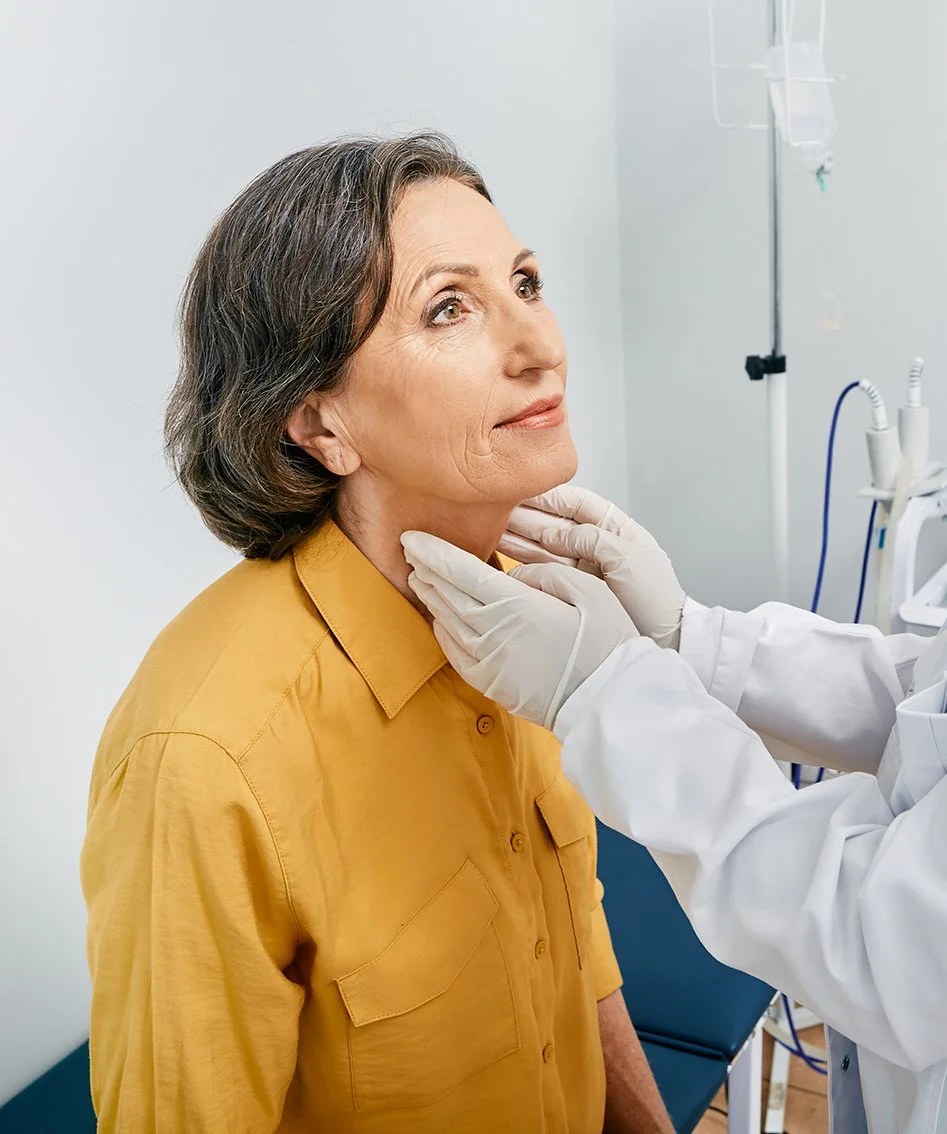Thyroid Nodules
The thyroid is often described as a butterfly shaped gland sitting in front of the neck. It lies in front of the larynx and trachea. Its function is to produce hormones that help control your body’s metabolic processes including heart rate, temperature, and growth.
What causes Thyroid Nodules?
Thyroid nodules are frequently found incidentally on imaging for other medical reasons, or someone noting a lump in the neck.
Thyroid nodules can be from benign causes such as colloid adenomas in multinodular goitre, Hashimoto’s thyroiditis, cysts, or other types of adenomas. Most thyroid nodules are benign and harmless. However, it is important to exclude thyroid cancer. Thyroid cancer accounts for roughly 5% of thyroid nodules. Certain risk factors for thyroid cancer include a history of prior head and neck irradiation, family history of thyroid cancer, and thyroid cancer syndromes (multiple endocrine neoplasia, familial adenomatosis polyposis, or Cowden syndrome).
What are the symptoms of thyroid nodules?
Most thyroid nodules do not cause any symptoms. Some thyroid nodules may produce excessive amounts of thyroid hormones leading to an overactive thyroid gland and symptoms similar to those in Grave’s Disease. Occasionally, large nodules will cause compression of the trachea or oesophagus.
Symptoms that may be related to thyroid nodules include:
difficulty breathing
difficulty swallowing
hoarse voice
What investigations need to be done?
Investigations required:
thyroid function tests (TSH, fT3, thyroid antibodies)
dedicated thyroid ultrasound to look at nodule size and features
Does a thyroid nodule need a biopsy?
The size of a particular nodule and its appearance on ultrasound will help guide if a biopsy if required. Current guidelines suggest thyroid nodules lacking concerning features on ultrasound (TIRADS classification) less than 1cm size do not require a biopsy. If a biopsy is recommended a small needle will be passed into the nodule under ultrasound guidance and cells aspirated (fine needle aspirate biopsy). The biopsy is analysed by specialist pathologists who will assign it a category (called Bethesda Classification) based on its features to give an estimation of its risk of being a thyroid cancer.
What nodules need surgery?
Nodules that are atypical on biopsy (Bethesda 3 and 4) in order to rule out a cancer.
Nodules with discordant results such as with suspicious features on ultrasound but a non-diagnostic fine needle biopsy.
Nodules that are growing substantially in size.
Large nodules causing compressive symptoms

